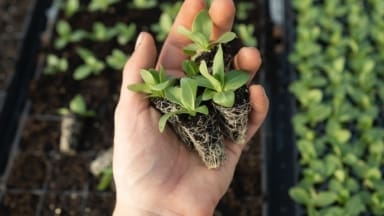
The Department for Environment, Food and Rural Affairs (Defra) has stated its intention to ban peat in commercial plant, tree, fruit, and vegetable production by the end of 2026 rather than 2030, as previously indicated. A reported 278k tonnes of CO2e would be saved by bringing the ban on peat use forward to 2026 from 2030, roughly equivalent to the carbon dioxide absorbed by half a million trees or 11. million small shrubs over their lifetimes.
However, though the industry shares the ambition to deliver a sustainable transition from peat use, environmental ambitions need to be more aligned with economic viability of the sector. Bringing the ban forward significantly reduces the time needed for growers to trial and adapt their methods and materials. New data from the Horticultural Trades Association (HTA) shows there is likely to be a severe impact on plant availability. Results from an HTA Member Survey revealed that UK commercial plant and tree growers would likely produce around 100 million fewer plants and trees for the 2027 season.
The HTA estimates that if the output from commercial plant growers fell by 10-15% in 2027, then pro-rata UK growers may see nearly 3,000 job losses, and this doesn’t take into account any jobs lost in garden retailers or parks and landscape maintenance services as a result of there being fewer plants and trees to sell or maintain.
Professional peat use is already below 50% of previous levels and on track for the original 2030 deadline. The use of peat in bagged compost is at a record low on a sharp trajectory towards zero, and professional use is already below 50% volume of previous levels, putting the UK ahead of the rest of Europe on the peat-free journey.

